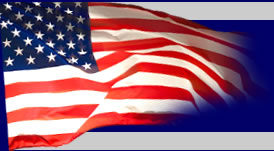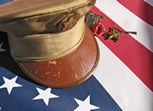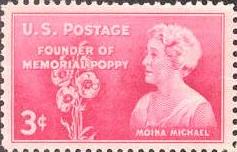 |
 |
 |
| Mon. - May 11, 2009 |
|
|
Contact UsRoswell Remembers |
| You are here: History » In Flanders Fields | ||
In Flanders Fields - One of the greatest war poems |
||
The PoppyThe Flanders Fields red poppy was introduced as a symbol of remembrance of those who died by a University of Georgia teacher, Moina Michael. Since she had volunteered for war work with the YMCA, she was called up for service as one of the overseas YMCA war workers. Although she completed her training, she was prevented from overseas service due to her age, 49. Instead of overseas service, she worked for the training headquarters. In this position she witnessed many heart-rending goodbyes as loved ones sent soldiers off to war. Having read the poem In Flanders Fields many times, Ms. Michael was particularly haunted by the last verse:
The first sale of the Flanders Fields Memorial Poppy is recorded by Ms. Michael as November 9, 1918. Since then, the poppy has become a symbol of remembrance at many Memorial Day services across the country and throughout the world. In 1948 the US Post Office honored Ms Michael for her role in founding the National Poppy movement by issuing a red 3 cent postage stamp with her likeness on it. |
||

Home | History | Program | Faces of War Memorial | Photo Gallery of Ceremonies | Directions | About Us | Contact Us | Site Map
© 2009. Roswell Remembers Memorial Day
This web site is the property of the Roswell Memorial Day Committee, and
no portion, including graphics and text, may be used without prior condition.
 Major John McCrae (Canadian Army) was a doctor serving in the Second Battle of Ypres. He was the second in command of the 1st Brigade Canadian Field Artillery. Although the deaths and suffering were unimaginable, one death particularly affected Dr. McCrae:
Major John McCrae (Canadian Army) was a doctor serving in the Second Battle of Ypres. He was the second in command of the 1st Brigade Canadian Field Artillery. Although the deaths and suffering were unimaginable, one death particularly affected Dr. McCrae: She likened it to a spiritual quest that was calling to her. She vowed to always wear a red poppy of Flanders Fields as a sign of remembrance and establish it as an emblem for keeping the faith with all who died. Her quest was overwhelming, but she was determined to get the poppy emblem adopted as a national memorial symbol. A campaign she would take on at her own expense.
She likened it to a spiritual quest that was calling to her. She vowed to always wear a red poppy of Flanders Fields as a sign of remembrance and establish it as an emblem for keeping the faith with all who died. Her quest was overwhelming, but she was determined to get the poppy emblem adopted as a national memorial symbol. A campaign she would take on at her own expense.